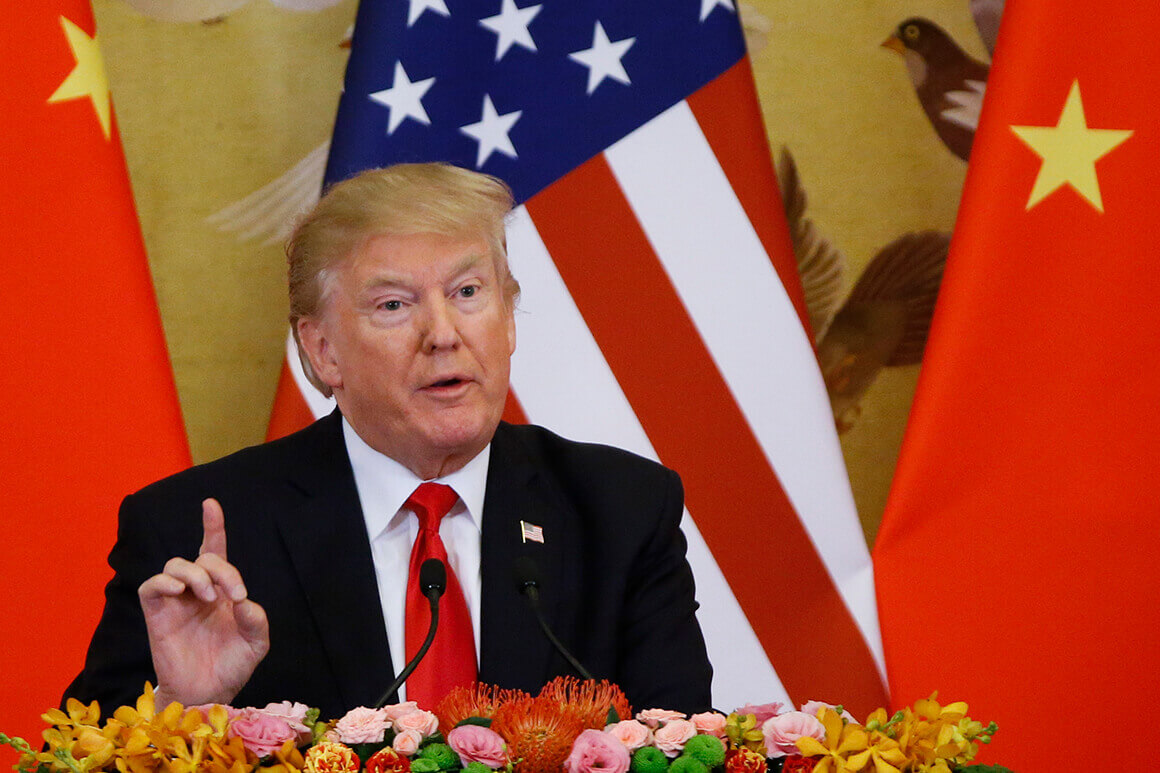Donald Trump signed an executive order on Thursday that prohibits U.S. investment in Chinese firms that are viewed to be owned or controlled by the country’s military, building on the designations made earlier this year by the Department of Defense. This is the latest attempt by the White House to pressure China over what Trump has described as abusive business practices.
The move hopes to deter U.S. investment firms, pension funds, and others from buying and selling shares of 31 Chinese companies. The order will impact some of China’s biggest telecommunications, aerospace, and construction firms, with China Telecom Corp Ltd, China Mobile Ltd, and surveillance equipment maker Hikvision all expected to take a hit as a consequence of the move. As per the terms of Trump’s executive order, which comes into effect on January 11, transactions carried in order to divest ownership in the companies will be allowed until November 11, 2021.
According to the White House’s latest order: “China is increasingly exploiting United States capital to resource and to enable the development and modernization of its military, intelligence, and other security apparatuses.” Following the release of the order, China Mobile Communications Group, which is on the Defense Department’s list, dropped 5.8% in Hong Kong opening, the biggest intraday loss since March. China Telecom also fell 4.8%. In response, Chinese officials have threatened to strike back with their own blacklist of US companies.
Since losing the November 3 election to Democratic rival Joe Biden, this is the first major policy initiative by President Donald Trump. It is indicative of his seeking to take advantage of the last few months of his administration to crack down on China, even as he challenges the election result and is yet to concede. According to US National Security Advisor Robert O’Brien, the order “serves to protect American investors from unintentionally providing capital that goes to enhancing the capabilities of the People’s Liberation Army and People’s Republic of China intelligence services.”
Over the past year, Trump’s relationship with China has been increasingly tense. While the US has imposed sanctions against pro-Beijing Hong Kong leader Carrie Lam and other officials in Beijing, it has not gone after China’s senior hierarchy so far. If the U.S. does decide to take a step like that, such a move would enrage Beijing and accelerate the decline in relations between the two powers on several other issues.
In this regard, Thursday’s move is likely to further impact the already frayed ties between the two major economies, which have been experiencing friction over China’s management of the coronavirus pandemic and Beijing’s imposition of the national security legislation on Hong Kong. Joe Biden has not laid out a clearly detailed foreign policy strategy for China yet, but his debates and interviews have been indicative of his plans on continuing a tough approach to Beijing.
Trump Bans American Investment in Chinese Firms Linked to Military
In an executive order announced by President Donald Trump on Thursday, the US will prohibit Americans from investing in firms viewed to be under the control of the Chinese military. Read more:
November 13, 2020

Thomas Peter-Pool/Getty Images 2019
